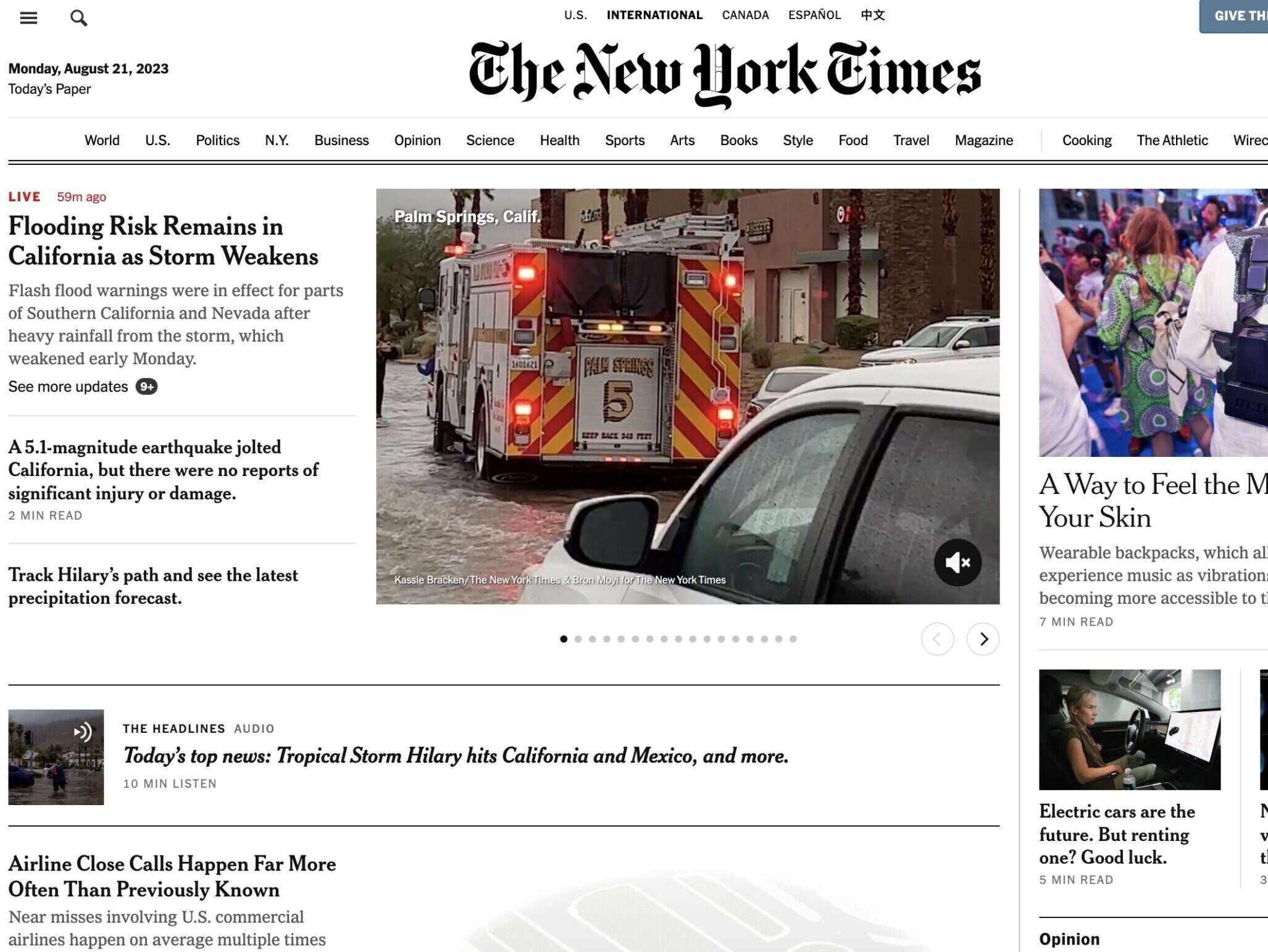News Websites Things To Know Before You Get This
News Websites Things To Know Before You Get This
Blog Article
News Websites for Dummies
Table of ContentsSome Known Incorrect Statements About News Websites The 2-Minute Rule for News WebsitesWhat Does News Websites Mean?The Facts About News Websites Revealed9 Easy Facts About News Websites Explained
It was down in the UK and Brazil however up a few other nations, such as Greece, Bulgaria, and Poland (News Websites). This year, for the very first time, we inquired about the different ways that individuals avoid the news and discovered that around half of avoiders (53%) were trying to do so in a broad-brush or periodic way for example, by turning off the radio when the news came on, or by scrolling past the news in social networkse.g. scrolling previous news, altering channels when news comes on. of avoiders check sources much less frequently. e.g. limit to certain times of day, shutting off alerts, etc. of avoiders stay clear of some subjects. e.g. subjects that reduce mood or increase anxiety. You said that you attempt to proactively prevent news.

I'm probably choosing to review even more light-hearted stories than I made use of to at the moment. M, 51, UK Turning my back on information is the only way I feel I can cope occasionally. I have to consciously make the initiative to turn away for my own mental health and wellness.
Some Known Facts About News Websites.
Careful avoidance of Ukraine news was highest possible in a number of the countries closest to the dispute, strengthening searchings for from our additional study in 2015, quickly after the war had started. Our information may not suggest an absence of rate of interest in Ukraine from neighboring countries however instead a need to manage time or safeguard psychological health from the extremely actual horrors of war.
Comparing Finland with a politically polarised nation such as the USA (see following chart) that is less influenced by the battle, we find a very different pattern of topic evasion. In the United States, we discover that customers are more likely to avoid subjects such as nationwide politics and social justice, where arguments over concerns such as sex, sexuality, and race have actually become highly politicised.
American politics are quite harmful nowadays. I discover occasionally that I need to separate from tales that simply make me mad. F, 61, USA For some individuals, bitter and disruptive political debates are a reason to shut off news entirely, however, for some political upholders, evasion is often about shutting out perspectives you don't desire to listen to.

All about News Websites
Some are aiming to make information a lot more easily accessible for hard-to-reach groups, widening the information schedule, commissioning even more motivating or positive information, or welcoming constructive or remedies journalism that provide people a feeling of hope or individual agency. In our Read Full Report study this year, we asked respondents regarding their interest in these various approaches.
This describes why tales like Ukraine or national politics do well with information regulars however can at the very same time turn much less interested customers away (News Websites). Selective avoiders are much less thinking about all sorts of news than non-avoiders however in loved one terms they do seem to be a lot more curious about positive or solutions-based information

Some Known Details About News Websites
2023). This might hold true in the minute, however gradually it seems to be leaving lots of people empty and less completely satisfied, which might be weakening our connection with and count on the information. Across markets, overall count on information (40%) and count on the resources people use themselves (46%) are down by a further 2 percent points this year.
With the rear-view mirror, the COVID-19 trust bump is plainly visible in the complying with graph, though the instructions of traveling after that has been mixed. In some situations (e.g. Finland), the count on rise has actually been maintained, while in others the upturn looks even more like a spot in a story of ongoing long-term decrease.
Some of the greatest reported levels of media objection are found in nations with highest degree of Look At This mistrust, such as Greece, the Philippines, the USA, France, and the UK. The most affordable degrees of media criticism frequent those with greater degrees of trust fund, such as Finland, Norway, Denmark, and Japan.
Some Known Incorrect Statements About News Websites
This year we asked participants concerning their choices for message, sound and video clip when taking in news online. Generally, we discover that the majority still like to check out the news (57%), instead of watch (30%) or listen to it (13%), but younger individuals (under-35s) are more probable to pay attention (17%) than older teams.
Behind the standards we find significant and surprising country differences. In markets with a strong analysis practice, such as Finland and the UK, around eight in ten still prefer to review on-line news, but in India and Thailand, around four in 10 (40%) state they choose to view news online, and in the Philippines that percentage mores than half (52%).
Report this page